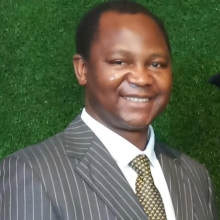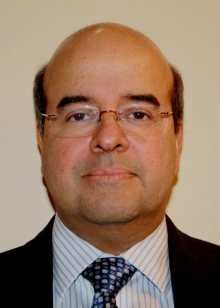
The tools we use every day, and the power that drives them, rely on ambitious and innovative engineers. From the phone in your pocket to nuclear safety systems and self-driving cars, our society continually interacts with what we study in the School of Mechanical and Electrical Engineering.
We're a recently-formed school, uniting the expertise of the School of Energy and Electronic Engineering and the School of Mechanical and Design Engineering. Our merger is underpinned by multi-million pound investments in new robotics and artificial intellence, energy and space engineering laboratories. Together, we can undertake even more ambitious teaching and research into the ways that engineering can lead to creative and practical solutions for societal issues.
Our staff play a crucial role in addressing both national and global challenges. They've developed diagnostic tools for nuclear power plants, enhanced the functionality and usability of prostheses, and used artificial intelligence to predict electricity consumption, cancer surgery patient outcomes, and weather events in a changing climate. We're also working to improve safety in air traffic control, and researching the advanced materials and manufacturing processes that can advance sustainability goals across a wide range of industries, including the space sector.
Our culture of collaboration and free exchange of ideas in research and teaching encourages and challenges our students. This open and welcoming culture of collaboration allows the free exchange of ideas with experienced and supportive lecturers, so that both our researchers and our students are challenged productively.
We've got a proven track record of producing sought after graduates with the practical skills for employment – over 90% of our students, from both pre-existing schools, are in work or further study 15 months after graduation (HESA Graduate Outcomes Survey 2019/20).
Discover Energy and Electronic Engineering
Discover more about the School of Energy and Electronic Engineering, where we explore how technology is used to understand and improve the way we interact with energy in all its forms.
Video showing teaching, research and facilities available in the School of Energy and Electronic Engineering at the University of Portsmouth (no dialogue).
Discover Mechanical and Design Engineering
Discover more about the School of Mechanical and Design Engineering, home to creative engineering solutions that make a difference to society.
Video showing highlights of studying in the School of Mechanical and Design Engineering at the University of Portsmouth: design, create and test engineering solutions to societal problems, with access to CNC and moulding machines. (No dialogue)
Teaching
Our active and engaging teaching supports our students as they gain the skills and knowledge for successful employment after graduation. Students challenge assumptions, develop their own projects, and work with peers both in the classroom and in external competitions.
We run undergraduate and postgraduate courses in electrical and electronic engineering, renewable energy, mechanical engineering, manufacturing, product design, robotics, industrial design and innovation engineering.
We support our students to achieve their goals through weekly drop-in sessions with academic staff, support workshops, Engineering Surgeries, the Maths Cafe, the Manufacturing Club, Electronic Society and student-led software classes. Many of our students also take part in the Formula Student Team where they build a car that's raced competitively against other universities. We champion gender equaility and inclusivity through our Female in Engineeering Foundation Society.
Browse all of our undergraduate and postgraduate degrees, on the engineering subject area page.
Accreditations
Many of our courses are accredited by professional bodies allowing our students to progress to become Chartered or Incorporated Engineers.
Extra-curricular opportunities
Through our close ties with local industries, national organisations and international businesses, our students get the chance to work in industry through placements and industrial projects.
Throughout their time with us, students are encouraged to take control of their careers and differentiate themselves from their competition in the employment market. With the support of the University, students have the opportunity to improve their skills — and their knowledge of different job profiles — through extracurricular projects, work experience opportunities and industrial placements.
Each allows students to enhance their studies with the experience they gain, and can boost their career prospects after graduation.
-
Extracurricular activities are organised by students for students and often include participation in inter(national) competitions organised by external organisations such as NXP, the IET and IMechE (our accrediting bodies) and more.
-
Formula Student racing car competition – Our UPRacing EV team competes in the international Formula Student competition, where students plan, design, cost and build a single-seat race car before competing against other teams at Silverstone and Circuit de Catalunya. The project brings together students from across engineering schools as they gain practical experience as well as financial and project management skills in a fun and competitive environment. In 2019, our team won the Class 2 competition, in which they created a complete design for a racing car, and came third out of 90 teams in the 2021 international Class 1 competition. In 2024, they were 2nd in the UK and 5th internationally in the Concept Class. Our second UPRacing Alternative Fuel team has also design a hydrogen concept car for 2024 competition.
-
UAS drone design challenge – Our student led drone team applies their learning in the lab and classroom by building a manned or unmanned drone to compete in the UAS Challenge against teams from all over the UK. Completing a real-life project measured against industry-like milestones during your degree is an excellent proof of employability.
-
NXP Challenge – Students design and race a small autonomous car in an international competition, developing valuable skills in hardware, software and project management.
-
Engineers Without Borders (EWB) Design Challenge – each year, EWB identifies a problem faced by citizens of underdeveloped or developing countries, and asks student groups across the world to solve them. The curriculum at Portsmouth builds this challenge into our assessments, so our students’ work is automatically entered into the competition
-
School Projects – Summers may be time to relax, but some of our students relax by getting involved in the School’s research projects. We advertise all research projects open to student involvement, and the students who join in get valuable research and development experience while also working in their fields of interest. The school also holds a database of competitions on Moodle that the students could pursue in their free time, supported by the school. They are able to claim badges as they complete these projects and attend different development activities.
Placements and work experience opportunities
We support and encourage our students to take work experience opportunities and/or a year-long placement, to help them stand out amongst the thousands of graduates competing for a graduate role soon after finishing study.
Placements in industry
Placements can be taken up across the UK and abroad, in small, medium and large companies. We are also part of the UK government's Turing scheme, offering summer and yearlong study abroad opportunities.
Opportunities to create self-employed and start-up placements are built into our engineering curriculum, with entrepreneurial skills taught in a compulsory module at level 5.
Read more about technology maths and engineering placements
Work experience
We have strong links with employers, through which our students can access varied work experience opportunities. Our students have done work placements at organisations including XMOS Core, Airbus, Portsmouth Water, Spirent, IBM and Apollo Fire Detectors. Many of our graduates go on to work for the same companies where they do their placement.We offer an Estée Lauder Companies - Whitman Scholarship, which offers a bursary and a work experience placement to local undergraduates.
Research
Our engineering research addresses national and global challenges, with a team of leading experts and postgraduate researchers who produce innovative, results-driven research to improve technology. Our REF 2021 results prove we're moving in the right direction — 75% of our engineering research outputs were judged to be world-leading or internationally excellent.
Our research activities in energy engineering, material science and AI-powered smart solutions have produced innovative solutions to industry issues in areas including health, biomedical engineering and energy efficiency.
Our areas of expertise
Explore the work we're doing across our areas of expertise in Engineering research.
Biomedical Engineering
We're exploring musculoskeletal biomechanics, cardiovascular engineering and biomedical imaging. Explore our biomedical engineering research

Energy and Electronic Engineering
We're researching the most recent advances in energy and electronic engineering, including renewable energy systems, robotics and signal processing, and how to apply them to real problems.

Partnerships and funding
Our partnerships with organisations around the world benefit from our teaching and research. Organisations we've worked with include Cartier, the Royal National Orthopaedic Hospital (RNOH), Queen Alexandra Hospital, Diamond Light Source, Glaxo Smith Klein, the Lung Institute, iRed, STS Defence, Southern Railway, Fortissimo, Tructyre, RL Capital, SoftIron, PML Flightlink, Flight Data Services, and European Technology Ltd.We're part of a team working on a project called FLOWER, funded by the European Regional Development fund to use plant fibres to produce more sustainable plastics that can be recycled.
We've received research funding from the Engineering and Physical Sciences Research Council, Innovate UK, the Leverhulme Trust, BEinCPPS, Technology Strategy Board, Royal Academy of Engineering, South East England Development Agency, Bridgeworks Ltd, Spoon2 Ltd, British Council Turkey, Interreg, and the Engineering and Physical Sciences Research Council (EPSRC).
Our research groups
Much of our exceptional research takes place within the following cross-disciplinary research centres – find out more below.
Portsmouth Centre for Advanced Materials and Manufacturing
We're undertaking fundamental and applied research in Materials Science and Engineering Technology with the focus of contributing UN’s Sustainable Development Goals.
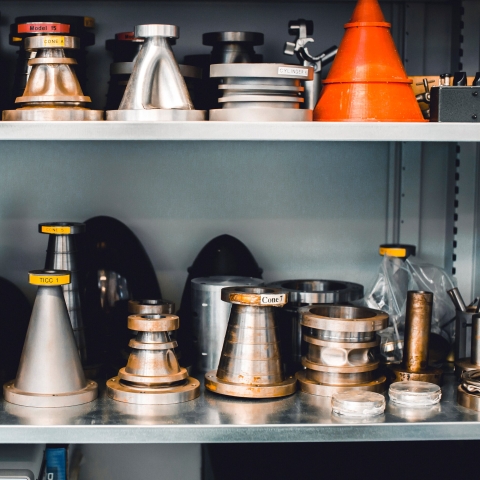
Biomedical Engineering Research Group
We're researching how to better understand the body through biomechanics, x-ray imaging, in-situ mechanical testing, and high-performance computing.

Innovative Industrial Research Group
Find out more about the research we're doing within our Innovative Industrial Research Group, where we're exploring how artificial intelligence (AI) can help improve the performance of different products and services.

Materials Design and Characterisation Research Group
Research and analysis of the mechanical and physical properties of alloys and other advanced materials used in critical applications.

Systems Engineering Research Group
We're researching smart mobility systems, intelligent assistive technology, automatic robotic systems, smart energy management, decision making systems and intelligent sensors.
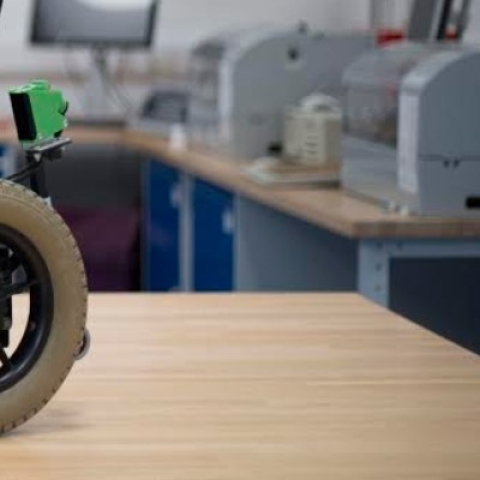
Our facilities
Additive Manufacturing and X-ray Microscopy Laboratories
In our Additive Manufacturing and X-ray Microscopy labs, materials engineering researchers can inspect objects in microscopic detail and create physical three-dimensional models based on their findings.

Future Technology Centre
The Future Technology Centre offers students, researchers and partners a collaborative, hands-on learning environment with open spaces to run experiments, debate and explore ideas.
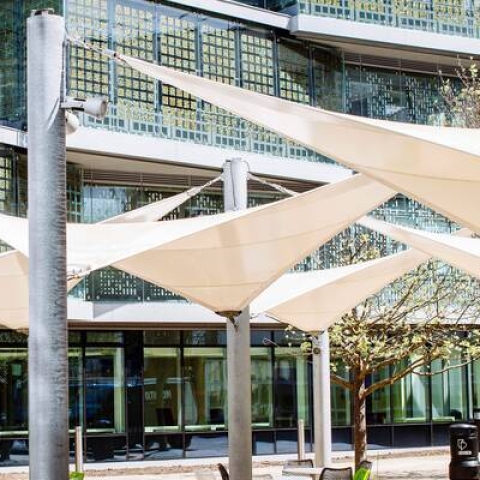
Our staff
Explore our faculty
Explore the other Schools and Departments that make up the Faculty of Technology.
School of Civil Engineering and Surveying
Explore the School of Civil Engineering and Surveying at the University of Portsmouth, and learn more about the teaching and research activities taking place within the School.

School of Computing
Learn more about the School of Computing at the University of Portsmouth, and explore the teaching and research activities taking place within the School.

School of Mathematics and Physics
Explore the School of Mathematics and Physics at the University of Portsmouth, and find out more about the teaching and research activities taking place within the School.

Faculty of Technology
Find out more about the Faculty of Technology at the University of Portsmouth, and explore the teaching and research activities that place within the Faculty's various schools and institutes.

Contact us
To get in touch, please contact our Faculty office.


